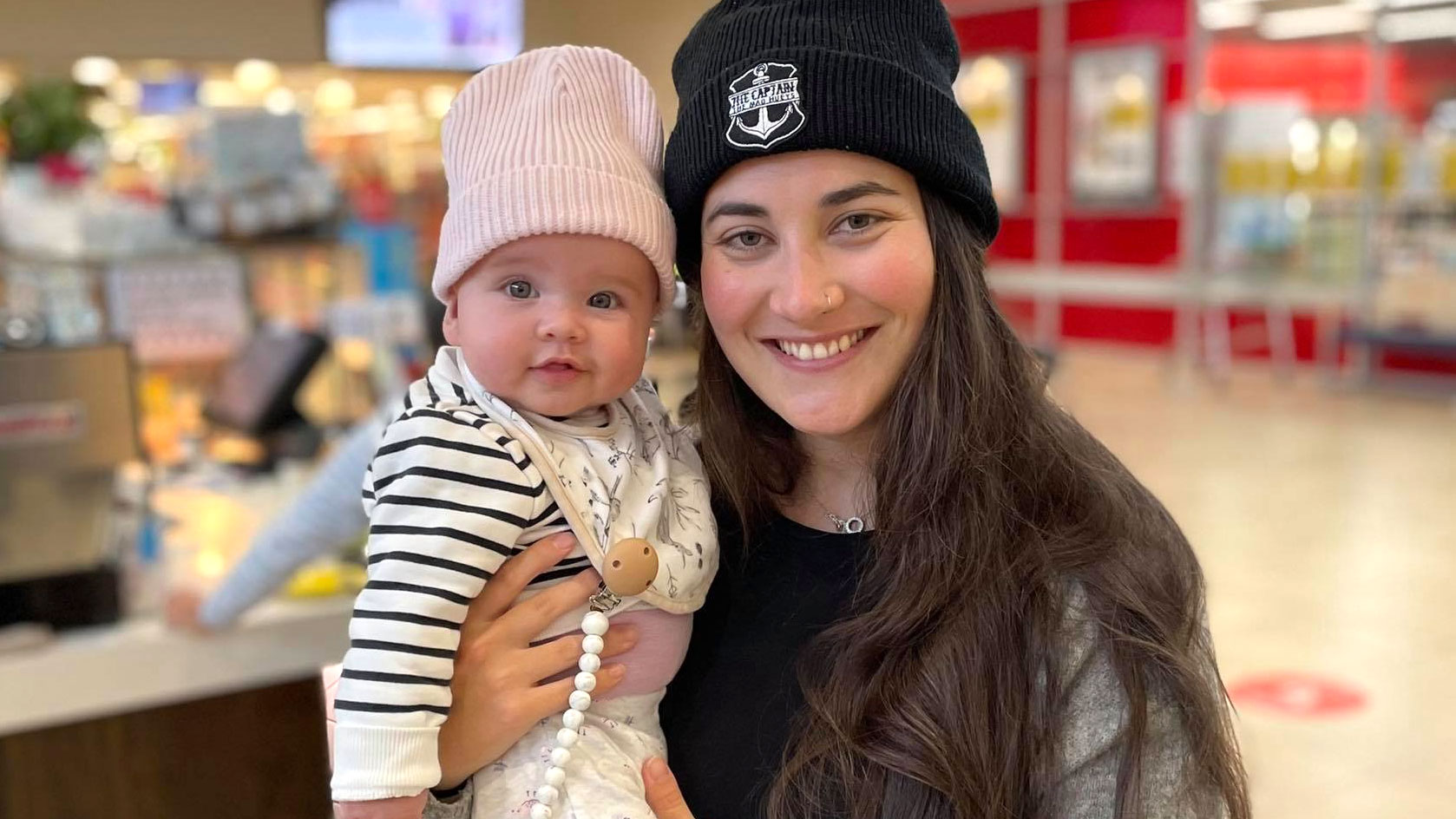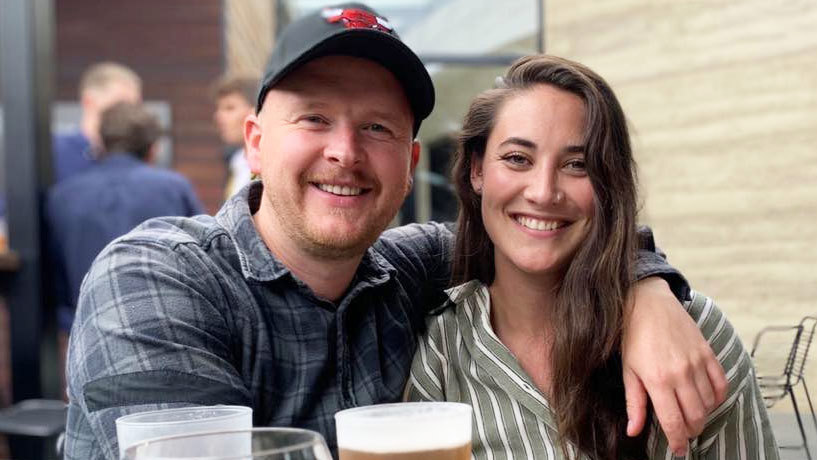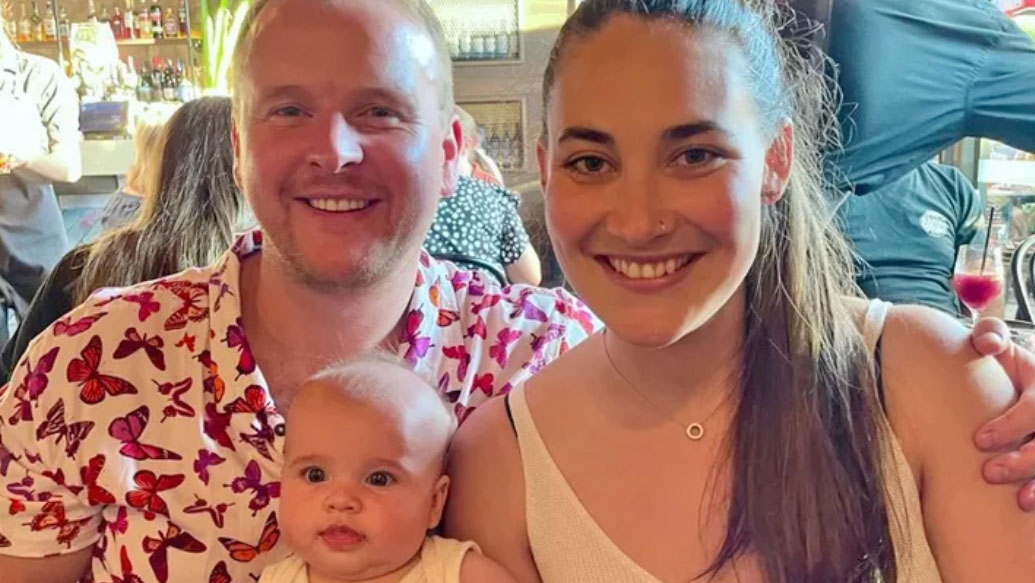It took more than two-and-a-half years for doctors to diagnose Rhiannon Coombs with bowel cancer.
The 31-year-old, from the Mornington Peninsula in Melbourne's south east, thought she had done everything right when she went to see her GP at the first sign something was wrong.
That was back in December 2018.
LIVE UPDATES: Victoria records spike in COVID-19 deaths

Ms Coombs had started to notice some blood in her stools.
"That was my only symptom and it wasn't happening very often, just every three or so months," she told 9news.com.au.
Ms Coombs was put on the public waitlist for a colonoscopy, which is an elective surgery procedure.
A few months went by and Ms Coombs said she heard nothing. Her doctor sent in another referral to the local hospital.
In March 2019 Ms Coombs was given an appointment at the hospital to be assessed for the surgery.
"I was asked about my family history and what my symptoms were and then put on the public waitlist for the colonoscopy.
"I was told it would be about a three-to-six-month wait," she said.
READ MORE: How the pandemic has impacted cancer diagnosis in Australia

Fast forward 12 months and Ms Coombs still did not have a date for her colonoscopy.
It was by now March 2020, and Australia's first wave of the coronavirus hit, forcing elective surgeries to be delayed.
Ms Coombs said she didn't hear anything from the hospital until early July 2020, during a brief window between Melbourne's lockdowns in 2020.
A staff member who was updating its waitlist rang to ask if she still needed the surgery, to which Ms Coombs said yes.
READ MORE: Canberra mum calls for bowel cancer screening age to be lowered
Ms Coombs said she wasn't particularly worried about her symptoms at the time, because none of the doctors she had seen seemed to be.
"I had been to the doctor a couple of times, and I saw that person at the hospital," she said.
"I didn't think to look into it further.
"I thought, oh well, no one thinks it's urgent."
Then Ms Coombs fell pregnant with her first child, and her symptoms got worse.
"Every time I went to the toilet there was blood," she said.
"I thought I had a haemorrhoid so I went to the doctor, twice, because I thought I should just get this checked.
"The doctor didn't even examine me, they just said it'll be a haemorrhoid, because of my pregnancy."
Last month, Ms Coombs finally had her colonoscopy done – two years and 10 months after she was given her initial referral.
The news was devastating.
"I was told that what I thought was a haemorrhoid was actually a tumour, a five centimetre tumour," Ms Coombs said.
Do you have a similar story? Contact us at emcpherson@nine.com.au.

Ms Coombs was diagnosed with stage-three bowel cancer.
Scans show the cancer has spread to some lymph nodes and the wall of her colon.
While caring for her five-month-old daughter, Hendrix, Ms Coombs is now facing a gruelling six months of chemotherapy and radiation, followed by surgery.
Ms Coombs said she had been left frustrated by a medical system that failed her.
"I did all the right things," she said.
"I went to the doctor because I wanted to check that it wasn't anything else.
"Who am I to know? I go to them because they're the professionals, and they tell me it's nothing really to be worried about, so that's what I believed."
Ms Coombs said she was left wishing she had not relied on the public health system, where already long wait waiting times and the pandemic had combined to create her 34-month wait for her colonoscopy.
The number of people waiting in Victoria for elective surgeries has ballooned during the pandemic.
As of September 2021, there were 67,600 people waiting for elective surgeries, figures from the Victorian Agency for Health information show.
Of those, 33,800 were waiting for category-three, "non-urgent" procedures, such as colonoscopies.
The average overdue wait time for category-three elective surgeries across the state in September 2021 was 225 days.
Tens of thousands of bowel cancer tests delayed
Bowel cancer claims the lives of 5255 Australians every year, including 290 people under the age of 50.
Despite a perception that it only affects older Australians, it is the deadliest cancer for young adults.
Cancer Australia has warned diagnoses have been delayed for a significant number of Australians during the pandemic.
There was an eight per cent drop in the number of tests carried out nationally in 2020, Cancer Australia figures show.
One of the biggest areas patients are "missing" is when it comes to colorectal cancer tests, such as for bowel cancer.
There were around 87,000 fewer of these tests such as colonoscopies carried out in 2020, Cancer Australia found. Usually there are almost 700,000 done annually.
Ms Coombs said she hoped her story would be a warning to others to be persistent in seeking answers for any medical concerns.
"Do what you think is right for you, for your health and peace of mind," Ms Coombs said.
"If you have symptoms of something that doctors are dismissing, just push and keep going until you find someone who's willing to get you the right tests."
Contact reporter Emily McPherson at emcpherson@nine.com.au
